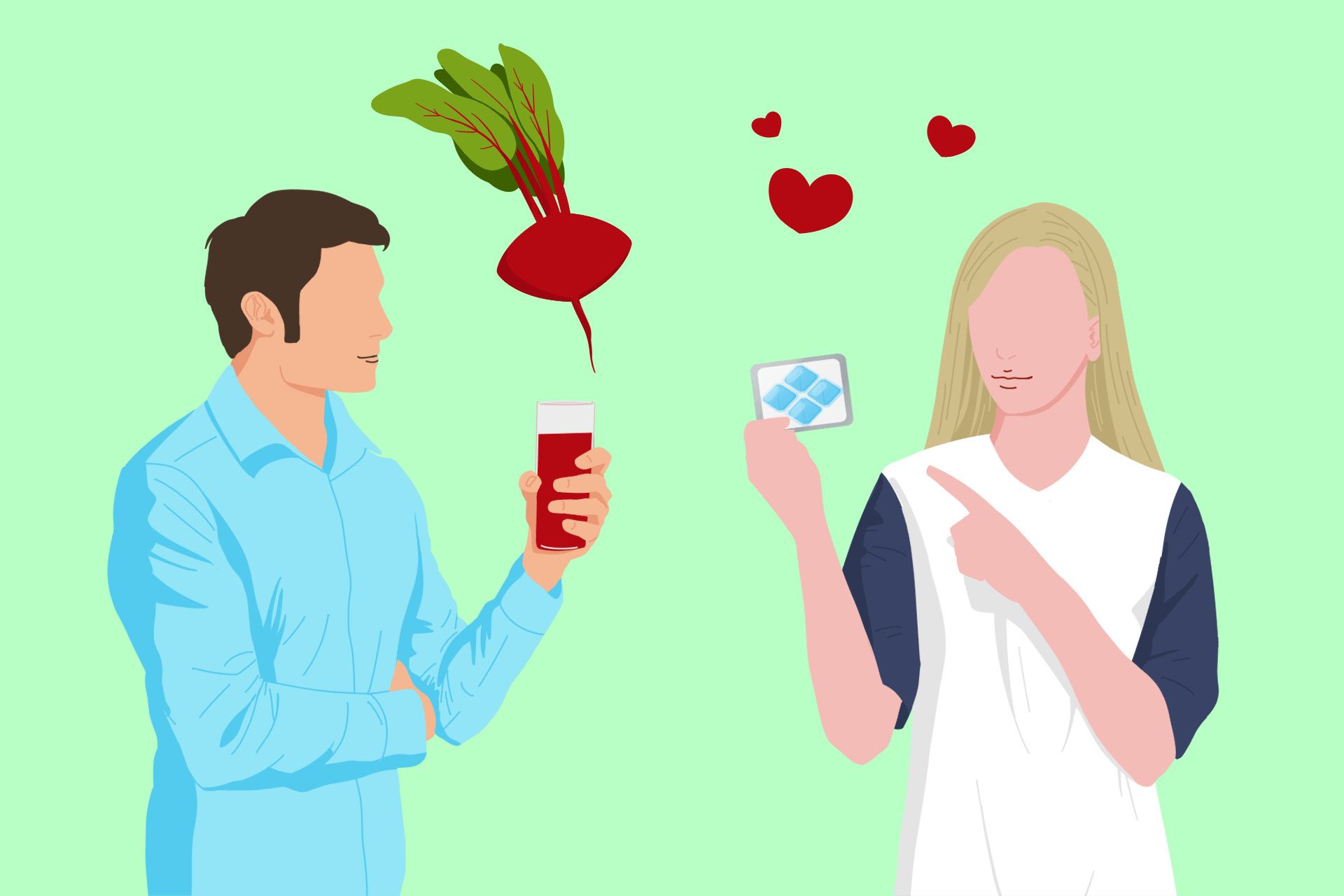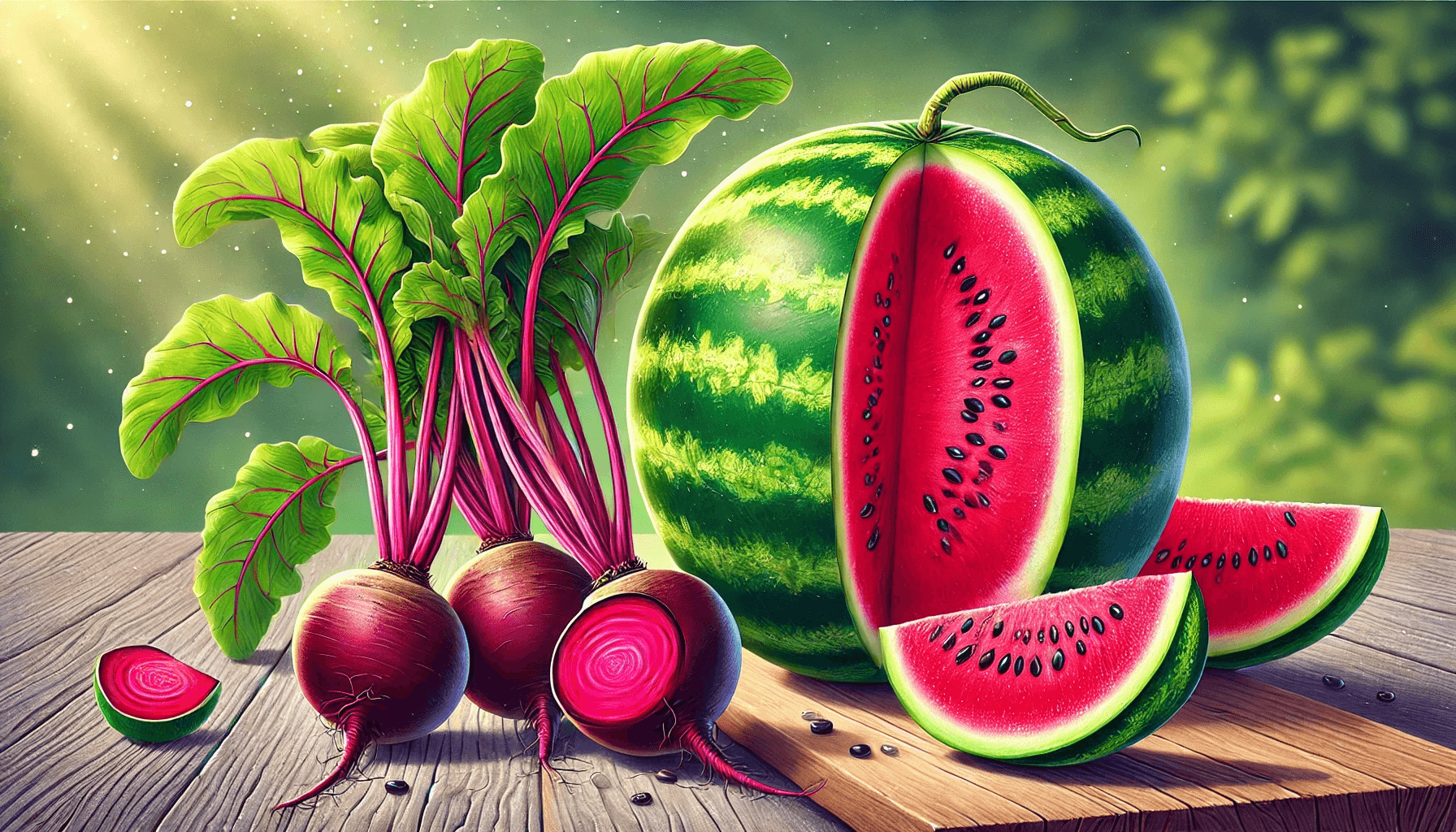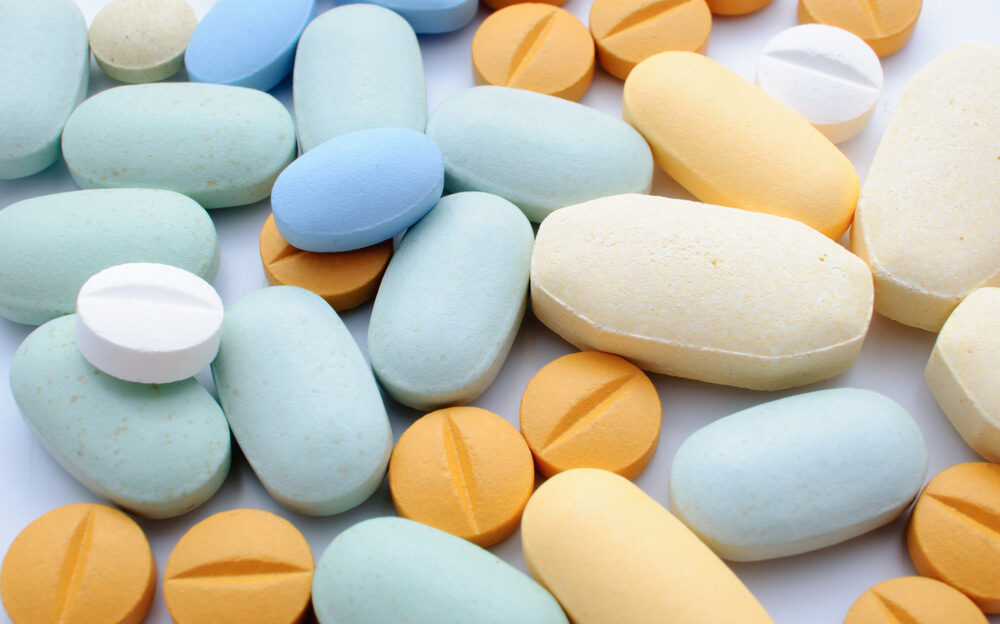In the quest for natural solutions to enhance sexual health, foods like beets and watermelon have garnered attention for their potential benefits in treating erectile dysfunction (ED). But are beets a natural Viagra? While pharmaceutical options like Viagra are widely known and used, many individuals seek alternatives that come with fewer negative effects and holistic health benefits. Certainly, ED affects millions of men globally, impacting not only physical health but also emotional well-being and relationships. Understanding the potential of dietary interventions can offer a supplementary approach to traditional therapies.

This guide provides a comprehensive overview of how beets & watermelons might serve as natural aids for impotence. It delves into the biochemical pathways involved, compares the efficacy of these foods, and discusses possible side effects.
Table of Contents
Beets for Erectile Dysfunction: Is It Real?
Beetroot, often categorized as a “superfood” alongside berries, nuts, and leafy greens, boasts an impressive array of nutrients. It’s particularly rich in vitamins B and C, fiber, minerals, and antioxidants, making it a valuable addition to a healthy diet [1]. Notably, cooking methods generally don’t significantly diminish its antioxidant levels, though pressure cooking can lessen its carotenoid content compared to raw beetroot.
Processing beetroot into capsules, powder forms, chips, or juice can influence its antioxidant properties, with variations depending on the product and brand. Despite these changes, beetroot remains a potent source of beneficial compounds. Historically, the Romans reputedly used beetroot and its juice as an aphrodisiac, suggesting a long-standing belief in its sexual health benefits. However, scientific evidence directly linking beetroot to improved sexual function is limited. This lack of evidence doesn’t necessarily negate its potential benefits but rather indicates that most studies have not focused on libido or sexual health specifically.
The mechanism behind the potential impact of the beetroot on impotence lies in its nitrate content. When consumed, the nitrate in beetroot undergoes a series of chemical reactions involving bacteria and enzymes, converting it into nitrite and then into nitric oxide (NO). NO is crucial for dilating blood vessels, which can augment blood circulation. Clinical studies have identified beetroot, celery, lettuce, and spinach as the richest dietary sources of NO [2].
NO supports testosterone’s role in regulating blood flow during sexual activity in men. Improved circulation, a key benefit of beet, can positively affect the cardiovascular system and potentially enhance sexual function for both men and women. Beets also contain betaine and other antioxidants, contributing to overall vascular health. The combined effects of these compounds might support better erectile function by promoting healthy blood vessels and reducing inflammation.
While the connection between beetroot consumption and sexual readiness appears plausible, it’s essential to temper expectations. Beet may offer modest benefits for sexual function, but it’s unlikely to dramatically transform one’s sex life. Undoubtedly, relying solely on beets for treating ED might not be sufficient for all individuals.
Besides, nature’s total approach to addressing ED often includes superfoods and ingredients known for their health benefits. A higher intake of foods rich in flavonoids is linked with a lessened risk of developing ED.
Beets vs Watermelon for ED

Comparing beets vs watermelon for their potential ED benefits involves looking at their primary active compounds: nitrates in beets and citrulline in watermelon. Citrulline is converted into arginine, another amino acid that increases NO production, similar to the effect of nitrates. Increased NO levels lead to better blood flow, potentially improving erectile function.
Watermelon, a super-quality product, has been dubbed “nature’s Viagra” due to its citrulline content. Citrulline supplementation improved erectile hardness in men with mild to moderate ED [3]. This suggests that watermelon could have a similar effect. Additionally, watermelon is rich in antioxidants and vitamins that support overall health, potentially providing added benefits beyond just improved erectile function.
When choosing between beets and watermelon, it might come down to personal preference and tolerance. Both foods offer cardiovascular benefits, and their consumption can be part of a healthy diet. Nonetheless, it’s important to recognize that while these foods may help support erectile function, they are not substitutes for medically proven ED treatments. Further, there’s no substantial proof of beet juice treating ED, but beet juice can increase NO in your blood, which may aid to open up blood vessels — like those around your penis — and upgrade the blood flow required for an erection [4].
Possible Side Effects of Taking Beet Juice
While beets offer numerous health benefits, including improved blood flow and reduced blood pressure, consuming beet juice can have some side effects. It’s noteworthy to be aware of these potential issues to make informed decisions about incorporating beet juice into your diet.
One of the most typical and benign negative effects of consuming beets is beeturia, a condition where urine and sometimes stools turn a reddish or pink color. While it might be alarming at first, beeturia is harmless and simply indicates that your body is excreting pigments from the beets. This condition affects approximately 10-14% of the population after eating beets [5].
Beets are high in oxalates, which can contribute to the formation of kidney stones in susceptible individuals. Those with a history of kidney stones or a predisposition to oxalate-related issues should be cautious with their beet juice consumption. Consult with a physician to determine a safe amount of beet juice if you have a history of kidney stones.
Beet juice is known for its blood pressure-lowering effects due to its high nitrate content. While this can be beneficial for those with high blood pressure, it might pose a risk for individuals with naturally low blood pressure or those on antihypertensive meds. If you drink beet juice in these cases, it could lead to hypotension (abnormally low blood pressure), which can cause dizziness, fainting, and other related symptoms. Monitor blood pressure regularly and consult with a physician if you are considering adding beet juice to your diet.
Further, beet juice is rich in fiber, which can promote digestive health, but excessive consumption might lead to gastrointestinal discomfort. Some individuals may experience bloating, cramping, or gas after consuming large amounts of beet juice. Gradually introducing beet juice into your diet can help mitigate these digestive issues. Some individuals might find that beet juice causes stomach upset, especially when consumed in large quantities. Symptoms can include nausea and an upset stomach. To minimize the risk of stomach discomfort, start with small amounts of beet juice and gradually increase your intake as your body adjusts.
Although rare, some people may have allergic reactions to beets. Symptoms can include itching, skin rashes, swelling, or even more severe reactions like difficulty breathing. If you experience any signs of an allergic reaction after consuming beet juice, seek medical attention immediately.
Besides, beet juice can interact with certain meds, particularly those that affect blood pressure. Individuals on antihypertensive drugs or nitrates for chest pain should be cautious when consuming beet juice, as it can potentiate the effects of these meds, leading to dangerously low blood pressure.
Proven ED Treatments: Viagra and Other PDE5 Inhibitors

Viagra (sildenafil) and other FDA-approved meds for ED, such as Cialis (tadalafil) and Levitra (vardenafil), are known as PDE5 inhibitors. Instead of relying on natural products like watermelon, these PDE5 drugs work effectively by enhancing the effects of nitric oxide, which relaxes muscles in the penis and increases blood flow, facilitating an erection in response to sexual stimulation. PDE5 inhibitors have a well-documented track record of success and safety in treating ED, providing reliable results for many men. Generic ED meds can be bought online from reliable vendors such as ViaBestBuys.com and CialisBit.com. These generic ED meds often cost much less compared to their brand-name counterparts.
Nonetheless, caution is necessary when using these meds, as they can have negative effects and interactions with other meds and health conditions. Common negative effects include indigestion, nasal congestion, headaches, flushing, and dizziness. More severe but rare negative effects can include changes in vision, sudden hearing loss, and priapism. Getting pickled and using these meds isn’t recommended as alcohol interacts and heightens its side effects.
PDE5 inhibitors can interact with meds such as nitrates, often prescribed for chest pain, leading to dangerously low blood pressure. Additionally, these meds may not be suitable for individuals with certain health conditions, including severe heart disease, recent stroke or heart attack, low blood pressure, uncontrolled high blood pressure, severe liver impairment, and certain hereditary degenerative eye conditions like retinitis pigmentosa.
Given these potential risks, consult with a healthcare provider before commencing any ED medication. A thorough medical evaluation can aid in determining the most suitable and safe treatment options based on personal health conditions and probable drug interactions. This technique guarantees that treatment is both efficacious & tailored to the individual’s health needs.
References:
- Organic versus conventional beetroot. Bioactive compounds and antioxidant properties. By Celia Carrillo, Diego Wilches-Pérez, Ewelina Hallmann, Renata Kazimierczak, and Ewa Rembiałkowska. Published December 2019. Sciencedirect.com.
- Possible Effects of Beetroot Supplementation on Physical Performance Through Metabolic, Neuroendocrine, and Antioxidant Mechanisms: A Narrative Review of the Literature. By Hamid Arazi and Ehsan Eghbali. Published: May 13, 2021. Ncbi.nlm.nih.gov.
- Oral L-citrulline supplementation improves erection hardness in men with mild erectile dysfunction. By Luigi Cormio, Mario De Siati, Fabrizio Lorusso, et al. Published: January 2011. Pubmed.ncbi.nlm.nih.gov.
- Effects of Beetroot Juice Supplementation on Cardiorespiratory Endurance in Athletes. A Systematic Review. By Raúl Domínguez, Eduardo Cuenca, José Luis Maté-Muñoz, et al. Published: January 6, 2016. Ncbi.nlm.nih.gov.
- Why beetroot turns poop and pee red. By Yella Hewings-Martin. Published September 17, 2017. Medicalnewstoday.com.